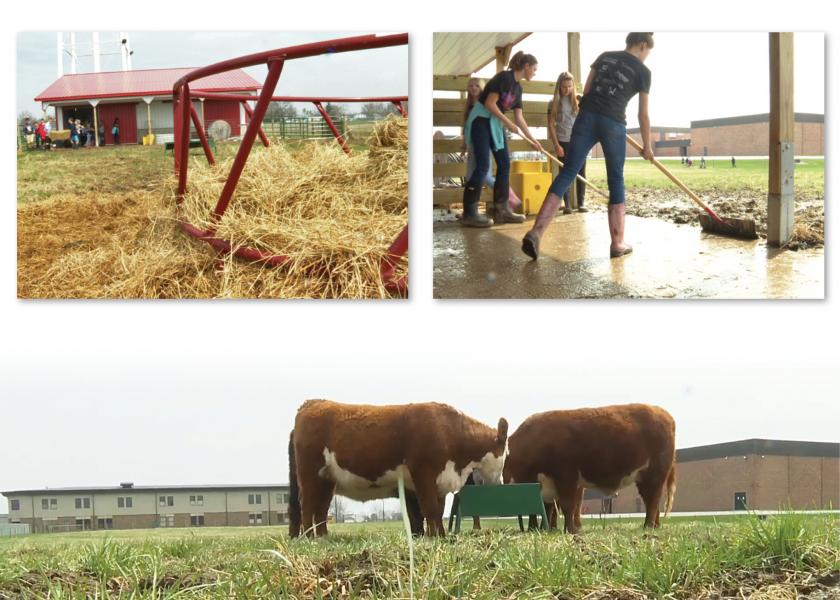Schooling Goes Beyond The ABCs

School might be wrapped up for the year in most areas, but the work by students at one Indiana School District isn’t finished. Some who attend the Maconaquah Middle School in Bunker Hill, Ind., are still learning by doing in their agriculture classes, thanks to a program called School To Table.
The program is designed to spark interest in ag business, science and production. Students are the farmers, and the ‘farm’ is adjacent to the school. Currently, the students are working with beef cattle.
“We have six breeding females, and we have four head that are going to be fed out,” says John Sinnamon, the school’s agricultural teacher.
The fairly new program is funded through a variety of grants from the USDA, industry and individuals. The grants helped the school purchase the cattle, and some were also donated by farm families.
“On a daily basis, the cattle are checked. The students check the water, make sure [the cattle] are healthy,” Sinnamon says, regarding the students’ responsibilities. “[The students] clean out the water tank and scrape out the concrete floor. That’s day in and day out [of] checking and raising cattle.”
The program has its own spin on the ‘farm to fork’ movement, as some of the beef makes its way onto the menu at the middle school lunch cafeteria.
Sinnamon says it would be ideal to one day expand the program to feed more of the school district. He also wants to expand the school’s agricultural education program even more.
Sinnamon says the School To Table program is giving kids who live on the farm as well as those who do not an opportunity to expand their agricultural knowledge.
“I think it’s a great experience for someone like myself since I’ve never had experience with livestock at all,” says junior high student, Molly Tenny. “It’s a lot of fun to see the other side of the spectrum.”
Sinnamon says the students care for the livestock, regardless of the date. “Every day—whether it is spring break, fall break, Christmas break, summer break—there are kids out there taking care of the cattle.”
Sinnamon adds many other classes in their school are involved with the agricultural program, even in small ways.
“Whenever the kids are writing a letter or something, our language arts department proofreads it for us,” he says. “Sometimes we get the math department in to help, too.”
It’s a way to have valuable lessons not always taught at school accessible inside and outside of the classroom, Sinnamon adds.







